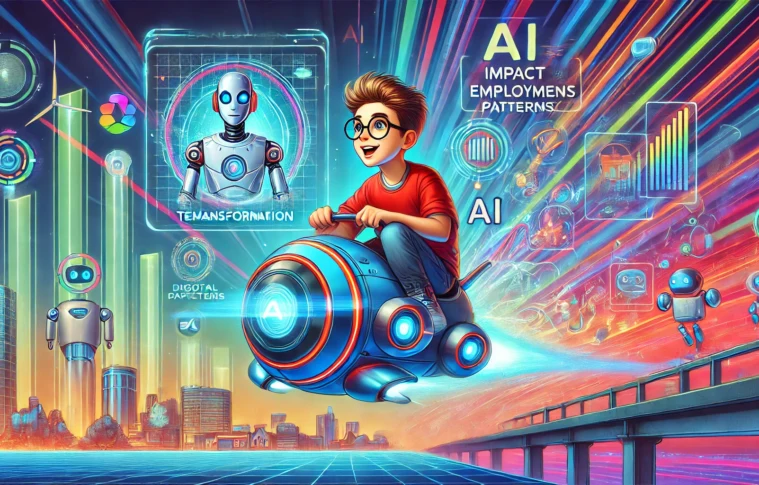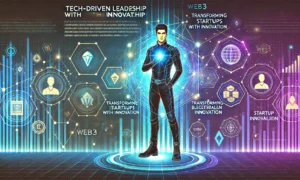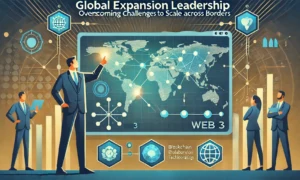Artificial intelligence (AI) is not just a technological revolution—it’s a workforce revolution. As AI continues to redefine industries, employment patterns are undergoing a profound transformation, forcing businesses and workers to adapt to a rapidly changing landscape. While the fear of job loss is real, AI also brings opportunities to redefine career paths and unlock human potential.
How AI is Reshaping Careers
- Automation of Routine Tasks:
- AI-powered systems are automating repetitive and manual tasks across industries, leading to increased efficiency but reducing the need for human intervention in certain roles.
- Examples include:
- Manufacturing: Robots managing assembly lines.
- Customer Service: Chatbots handling basic customer queries.
- Creation of New Career Opportunities:
- AI is creating roles that didn’t exist a decade ago, focusing on areas like data science, machine learning engineering, and AI ethics.
- Specialized positions such as AI trainers and explainability analysts are emerging to meet the demand for expertise in managing AI systems.
- Changing Skill Demands:
- Workers are now required to possess hybrid skill sets, combining technical expertise with soft skills like creativity and critical thinking.
- Upskilling in areas like coding, data analytics, and AI tool operation is becoming essential.
Industries Most Affected by AI
- Healthcare:
- AI is improving diagnostics, streamlining patient care, and automating administrative tasks.
- New roles in healthcare technology are emerging, requiring a mix of medical and AI knowledge.
- Retail:
- AI-driven personalization is revolutionizing the customer experience, requiring employees skilled in managing AI-based systems.
- Inventory management and supply chain optimization are increasingly automated.
- Finance:
- AI tools are handling fraud detection, financial planning, and risk assessment, creating demand for professionals who can interpret and implement these technologies.
- Education:
- AI-powered platforms are personalizing learning experiences, shifting educators’ roles toward mentorship and curriculum design.
Opportunities vs. Displacement
While automation may lead to job losses in specific sectors, it also drives economic growth and innovation, creating new jobs in emerging fields. According to the World Economic Forum, AI is expected to displace 85 million jobs by 2025 but simultaneously generate 97 million new ones, emphasizing the need for reskilling and adaptability.
Adapting to the AI-Driven Workplace
- For Businesses:
- Companies must focus on workforce reskilling programs and embrace collaborative AI systems that enhance human capabilities instead of replacing them.
- Investment in employee training and technology adoption is crucial for staying competitive.
- For Workers:
- Lifelong learning is no longer optional; workers need to stay updated with emerging technologies and industry trends.
- Flexibility and adaptability will be key to thriving in an AI-dominated workplace.
- For Governments:
- Policy frameworks are needed to manage the transition, ensuring job creation and social safety nets for displaced workers.
- Collaboration with private sectors to fund reskilling initiatives is critical.
The Future of Work in the AI Era
- Blended Workforces: AI and humans will increasingly collaborate, with AI handling data-driven tasks and humans focusing on strategy, innovation, and interpersonal connections.
- Focus on Creativity and Emotional Intelligence: Roles emphasizing human creativity and emotional intelligence, such as in arts, leadership, and counseling, will remain irreplaceable.
- Global Talent Redistribution: Remote work enabled by AI tools will lead to a more distributed and global workforce.
Final Thoughts
AI’s impact on employment patterns is undeniable, reshaping not only how we work but also how we prepare for work. While challenges such as job displacement are real, the opportunities for innovation, efficiency, and career growth are immense. The key lies in proactive adaptation, lifelong learning, and embracing the new possibilities that AI brings.
Stay informed with us as we explore the evolving dynamics of AI in the workplace and its implications for businesses and workers worldwide.



